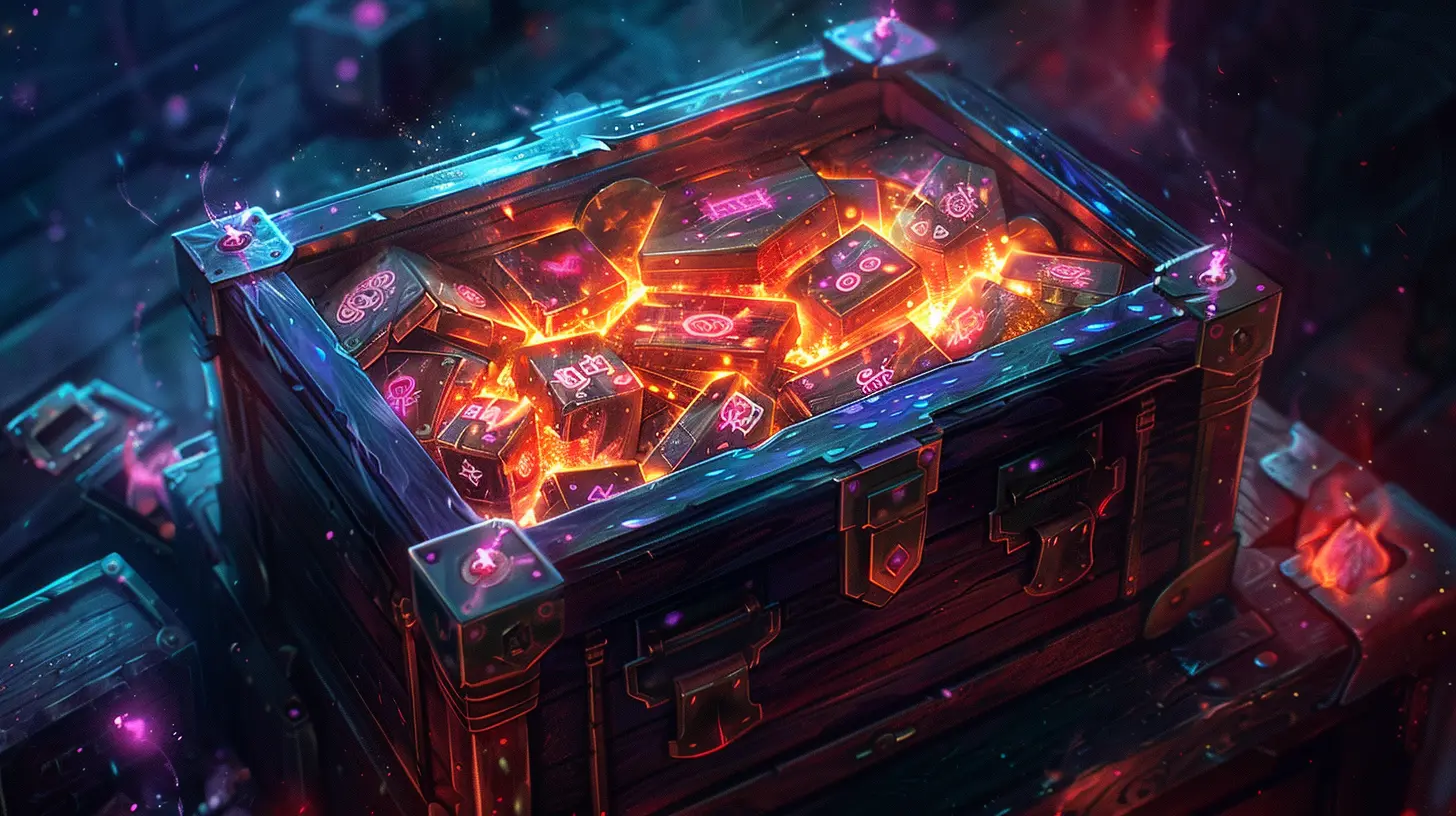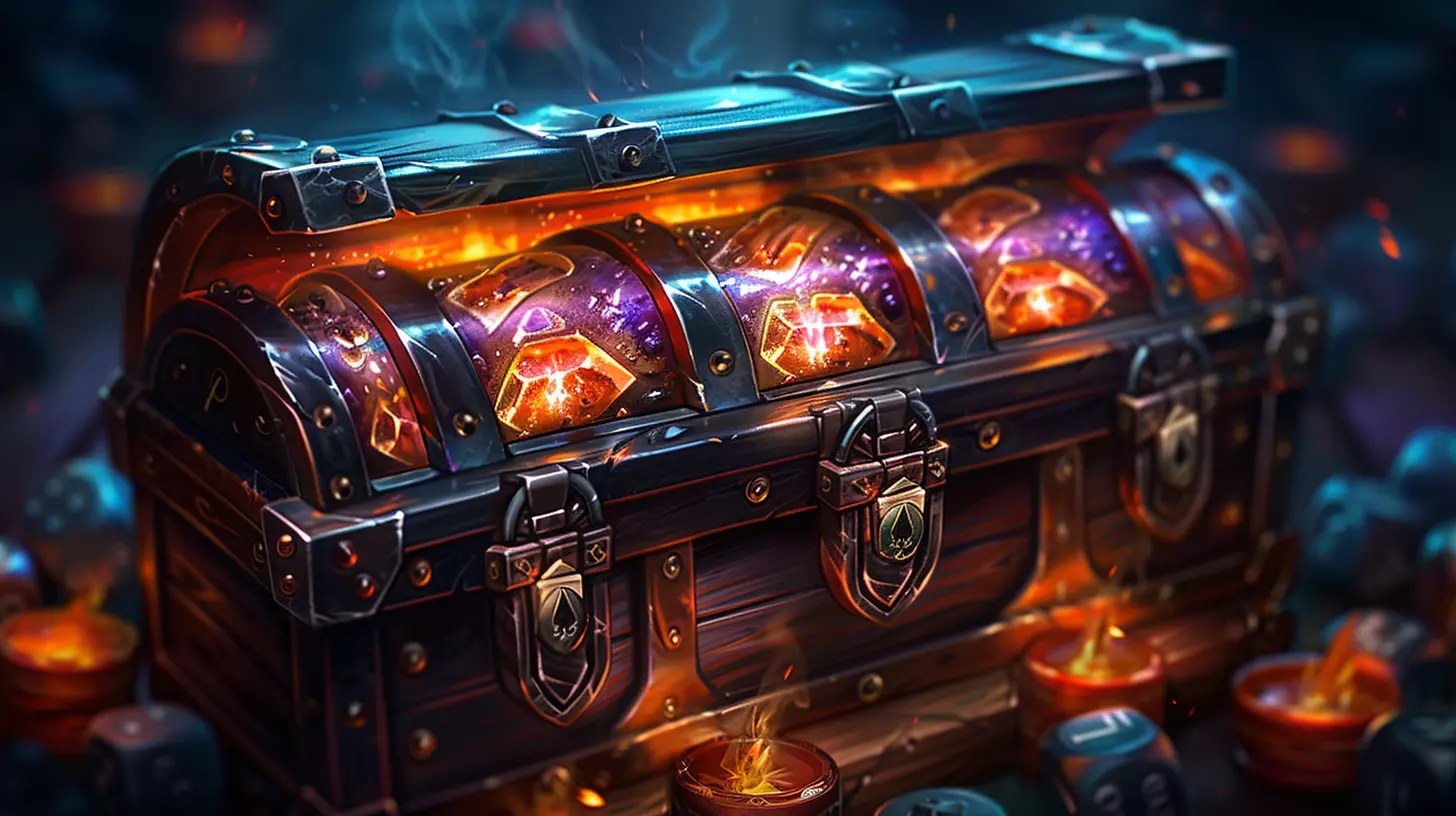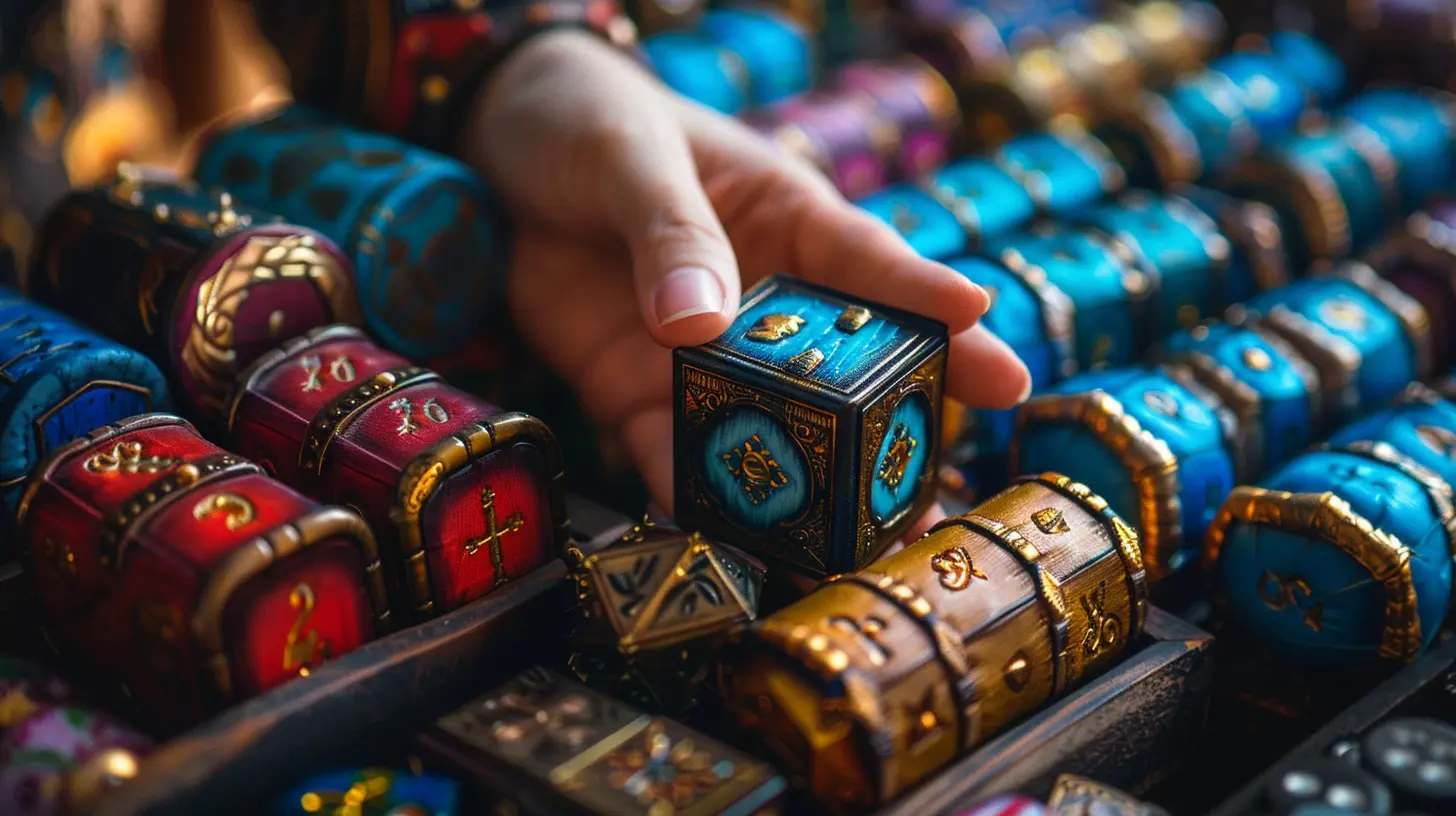Loot Boxes and Gambling: A Fine Line
31 July 2025
Let’s talk about something that's stirred up serious debate in the gaming world — loot boxes. You’ve probably seen them. Maybe you’ve even bought a few. They’re those flashy treasure-chest-like rewards in video games that give you random items. Some are awesome, some are meh, and some feel like striking gold. But here's the catch — they’re not always just "fun surprises." In fact, they’re starting to look a lot like gambling.
Yep, we said it. Gambling.
Now before you raise an eyebrow or scroll away, stick with me. This topic isn’t just for game developers or lawmakers — it affects players like you and me, parents with kids who game, and the entire gaming community. So let’s unpack this tangled mess together and see where loot boxes stand in the great moral (and legal) debate of modern gaming.
What Are Loot Boxes, Anyway?
Think of loot boxes as a virtual piñata. You crack it open, and out comes some random goodies. Maybe it’s a rare weapon, a cool new skin, or a bunch of in-game currency. The excitement comes from not knowing what you’ll get — kind of like a pack of trading cards.You can earn loot boxes through gameplay, but here’s the kicker — a lot of games let (or nudge) you to buy them with real money. That’s where things start to get fuzzy.
The Psychological Hook: Why Loot Boxes Feel So Addictive
Remember the thrill of a slot machine or pulling a lever at a carnival to win a prize? That’s the same brain chemistry loot boxes tap into. It's all about dopamine — the “feel-good” chemical.Game devs design loot box systems to create anticipation. There’s flashy animation, dramatic music, maybe even a drumroll. It’s no accident — it’s carefully engineered to pump you up and keep you coming back for more.
The randomness, the reward, the illusion of “just one more try”… it’s a classic gambling mechanic. And that's no coincidence.
Loot Boxes vs. Gambling: What’s the Difference?
Okay, so here’s the million-dollar question: are loot boxes actually gambling?Let’s break it down. Traditional gambling involves three things:
1. You stake something of value (like money).
2. The result is based on chance.
3. You stand to win something of value.
Now, let’s plug loot boxes into that. You pay real money? Yep. You get a random reward? Yep. That reward has value? Wait a sec… that’s the tricky part.
Game developers argue that loot box prizes aren’t “real-world” valuable. But marketplaces with rare skins selling for thousands say otherwise. So yea, it's messy.
Regulatory Gray Area: The Legal Limbo
Different countries are handling this mess differently. Belgium and the Netherlands straight-up banned loot boxes in some games. They're calling it what it is — gambling.Other regions, like the U.S. and U.K., are watching closely but haven’t drawn a hard line yet. Some developers are trying to stay ahead of regulation by adding transparency — like showing drop rates or banning purchases for minors.
But here’s the thing: laws haven’t quite caught up with the tech. And that means gamers are still caught in this murky in-between space.
The Impact on Gamers: Not Just “Harmless Fun”
Let’s get real for a sec — the effects of loot boxes go beyond gameplay. There’s growing concern about how they affect younger players. Kids and teens are especially vulnerable to the dopamine-driven loop of spending and rewards.Imagine a 12-year-old spending their pocket money chasing an elusive skin, just like someone might bet on a horse race. Sounds a little unsettling, right?
We’ve also seen cases of players racking up hundreds — even thousands — of dollars chasing loot. Regret, frustration, financial stress... that’s not what gaming should be about.
The Industry’s Response: Changing the Game (Literally)
To be fair, the gaming industry isn't just sitting on its hands. Some major publishers have taken steps to tone things down.Games like Fortnite have switched to transparent item shops — you know exactly what you're buying. Others, like FIFA, now show you what’s in a pack before you purchase with in-game currency.
Still, many titles are holding tight to the loot box formula because, let’s face it, it’s profitable — like, billions-of-dollars-a-year profitable.
Alternatives to Loot Boxes: There’s a Better Way
Look, gamers aren’t against paying for content. We love supporting developers who bring us epic adventures and unforgettable stories. But there are better ways to do it.Here are some alternatives players (and parents) can get behind:
- 🎮 Battle passes: You pay once and unlock rewards as you play.
- 🎮 Direct purchases: See it. Like it. Buy it. Simple as that.
- 🎮 Cosmetic-only monetization: Let rewards enhance style, not performance.
- 🎮 Earn-only systems: All rewards through gameplay — no wallets required.
These models feel fairer, more transparent, and way less addictive.
Parents, Heads Up: What You Need to Know
If you’re a parent reading this — first off, high-five for being proactive.Here’s the deal: loot boxes might look like harmless fun, but they're built to encourage spending. Talk to your kids about how they work. Lots of games have parental controls — use them. And always check a game's rating and content warnings (some even flag for in-game purchases or gambling-like mechanics).
Your awareness can be the shield that keeps your kids safe from impulsive spending and unhealthy gaming habits.
As Gamers, We Deserve Better
Gaming should feel like a playground, not a casino. We play games to escape, to explore, to win — not to fall into risky spending habits.It's okay to love games and still expect more from them. As a community, our voices matter. The more we talk about loot boxes and demand transparency, the more developers will be pushed to listen.
The line between loot boxes and gambling may be fine, but that doesn’t mean we can’t draw our own — one that puts player experience and mental well-being above profits.
Final Thoughts: Let’s Change the Game
At the end of the day, loot boxes aren’t evil incarnate — but they’re definitely not innocent either. They sit on the edge of entertainment and exploitation, and that’s a tightrope we can’t afford to ignore.Whether you’re a casual player, a competitive grinder, a parent, or someone who just loves a good loot drop — keep asking questions, stay informed, and let your voice be heard. Gaming should be about joy, not chance.
Because when it comes to loot boxes and gambling, the line might be fine — but the impact is anything but.
all images in this post were generated using AI tools
Category:
Loot BoxesAuthor:

Lucy Ross
Discussion
rate this article
2 comments
Beth McCall
In a world where virtual treasures promise endless excitement, are we navigating a playful gamble or a perilous trap? As developers walk the tightrope between engagement and exploitation, the question lingers: can we trust our instincts, or are we merely pawns in a digital game?
January 23, 2026 at 4:01 PM

Lucy Ross
The balance between engagement and exploitation in loot boxes raises critical questions about trust and player agency, underscoring the need for transparency and ethical design in gaming.
Atlas McDonald
Interesting perspective on the loot box debate! It raises important questions about game design and player psychology. How can developers balance monetization with fair and enjoyable gameplay experiences?
August 9, 2025 at 4:55 PM

Lucy Ross
Thank you! Developers can balance monetization and gameplay by prioritizing transparency, allowing player choice, and ensuring that in-game purchases enhance rather than hinder the experience.


